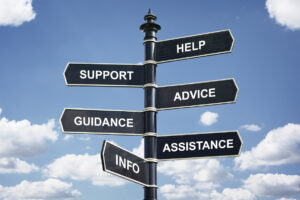 Uncommonly Common
Uncommonly Common
Bullied children are a continuous trend throughout generations. Previously, bullying was common and children were taught to “fight back” or protect themselves physically. Bullying in previous years was written off as something “that was just going to happen”. Presently, bullying is something that can cause great harm, can follow children throughout their lives through social media, and even can cause long term mental health issues, or even suicide. With highly publicized cases of adolescent suicide as a reaction to bullying, many schools and communities have adopted a “zero tolerance” policy on bullying. However, the key is that in most of the cases which resulted in suicide, the parents were completely unaware that the bullying was even happening at all. Many kids are afraid to speak out about their bullying due to embarrassment, fear of punishment, or fear of backlash or blackmail.
Presently, children are being bullied through a plethora of mediums, such as social media (and not the ones that we commonly think of like facebook, instagram, and snapchat. There are apps that our children are downloading and could possibly be bullied on, or taking part in the bullying such as WhatsApp, Kik, Whisper, Streetchat, or ask.fm where participants can ask/be asked questions completely anonymously. Bullying and cyberbullying are common in all areas, including the metro Atlanta area. If you are suspecting something is wrong with your child, and they could possibly be a victim of bulling, chances are you are correct. In a recent study, 50% of students in Georgia reported to have experienced bullying of some kind.
Warning Signs

According to stop bullying.gov, some common/traditional warning signs that your child may be getting bullies could be any of the following:
- Unexplainable injuries
- Lost or destroyed clothing, books, electronics, or jewelry
- Frequent headaches or stomach aches, feeling sick or faking illness
- Changes in eating habits, like suddenly skipping meals or binge eating. Kids may come home from school hungry because they did not eat lunch.
- Difficulty sleeping or frequent nightmares
- Declining grades, loss of interest in schoolwork, or not wanting to go to school
- Sudden loss of friends or avoidance of social situations
- Feelings of helplessness or decreased self esteem
- Self-destructive behaviors such as running away from home, harming themselves, or talking about suicide
- Noticeable increases or decreases in device use, including texting.
- A child exhibits emotional responses (laughter, anger, upset) to what is happening on their device.
- A child hides their screen or device when others are near, and avoids discussion about what they are doing on their device.
- Social media accounts are shut down or new ones appear.
- A child starts to avoid social situations, even those that were enjoyed in the past.
- A child becomes withdrawn or depressed, or loses interest in people and activities.
Seeking Help 
Often the school is the first to be held responsible when it comes to who is to blame for the bullying in the first place, however, once the bullying is identified, it is imperative that the parents seek professional help for their children if they notice a change in their personality, behavior, or demeanor. The long term affects of bullying/cyberbullying can be immense, and should be checked out by a professional. A quick google search of “child and adolescent therapists in Fayetteville, Ga” could get you starting in the right direction. Seeking help for your children after they experience bullying is a preventative measure, and one that you will be thankful you pursued for years to come.
Book with a Child and Adolescent Therapist Today!
Resources:
https://www.ncbi.nlm.nih.gov/pmc/articles/PMC3735379/
stopbullying.gov





You must be logged in to post a comment.